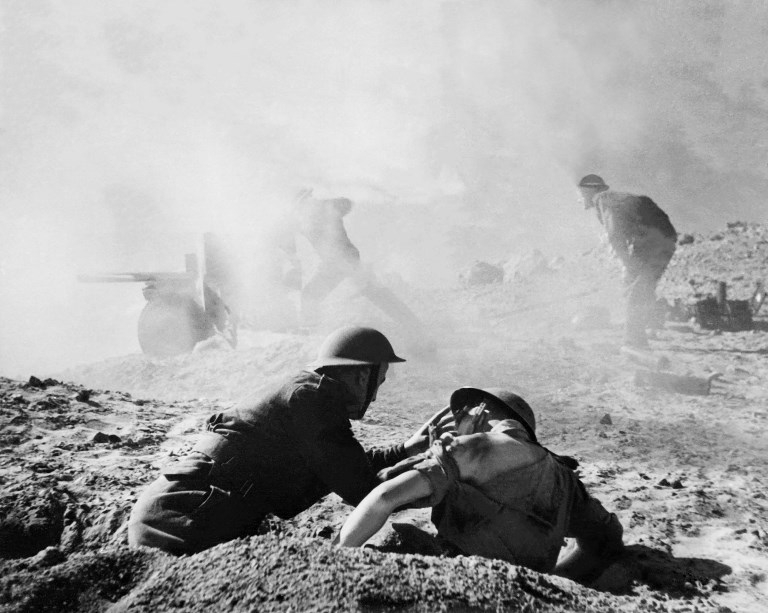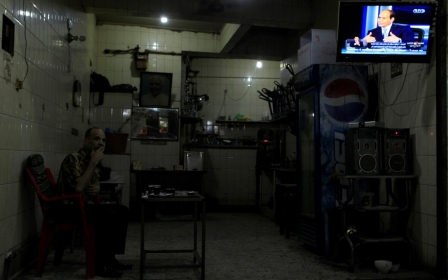Ceremony marks 75 years since El Alamein battle as Egypt mourns

Delegates from former foes on Saturday marked 75 years since the pivotal Second World War battle of El Alamein that saw the Allies turn the tables in North Africa, as host country Egypt mourned the killing of dozens of its policemen.
The commemoration, held under tight security, was marred by an militant attack Friday on Egyptian security forces about 250 kilometres to the south that killed at least 52 police officers.
Officials from 35 nations paid their respects in a ceremony at a Commonwealth cemetery on Egypt's Mediterranean shore that holds the remains of more than 7,000 soldiers from the victorious British-led force.
Evil will not prevail
In a speech, the British ambassador to Egypt, John Casson, hailed "the sacrifices of those who gave their lives here ... and thanksgiving for acknowledgement that, in the end, evil will not prevail".
"This will be a place to remember those who fallen 75 years ago but also remembering those who are still dying and falling," said Casson.
Casson paid his respects to "especially those who lost their lives in this despicable terrorist attacks yesterday" in an ambush in Egypt's Western Desert that medical and security sources said killed scores of police officers.
President Abdel Fattah al-Sisi attended events in El Alamein to mark the anniversary.
The Second World War Battle of El Alamein, which began on 23 October 1942, pitched the forces of Britain's Bernard Montgomery against the Afrika Korps of Germany's Erwin Rommel.
The defeat of the German and Italian troops put an end to the ambitions of Hitler and Mussolini to take over the port of Alexandria on the Mediterranean and the Suez Canal.
The battle was a major turning point in the war, halting the advance of the Axis in North Africa and paving the way for the final victory there the following year.
The end of the Afrika Korps
"Now this is not the end. It is not even the beginning of the end. But it is, perhaps, the end of the beginning," British leader Winston Churchill said famously in the wake of the victory.
The event on Saturday was attended by representatives from Commonwealth countries that made up the Allied force, including Australia, New Zealand, India and South Africa, and those who were their sworn enemies at the time.
Organisers from the Commonwealth War Graves Commission called the commemoration the "largest for many years" and said it "is likely to be the last on this scale".
Egypt was occupied by the UK in 1882 and British troops remained in the country after the 1922 formal recognition of independence.
Although the country provided facilities to the British war effort, few Egyptians fully backed the British and prior to El Alamein many expected its defeat.
British officials regularly intervented in Egyptian politics and the country did not gain full self-rule until 1952.
New MEE newsletter: Jerusalem Dispatch
Sign up to get the latest insights and analysis on Israel-Palestine, alongside Turkey Unpacked and other MEE newsletters
Middle East Eye delivers independent and unrivalled coverage and analysis of the Middle East, North Africa and beyond. To learn more about republishing this content and the associated fees, please fill out this form. More about MEE can be found here.




